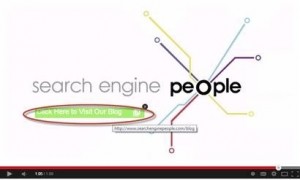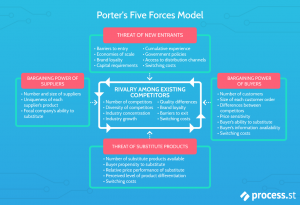What do current trends say about the direction of search, and how can you prepare? Columnist Ryan Shelley shares his predictions for the industry.

SEO is a constantly changing and growing industry. No longer is search engine optimization seen as internet “black magic,” but it is now regarded as an essential part of any serious digital marketing strategy. Last year, it was estimated that businesses invested more that $65 billion on SEO services, and that number is projected to climb to over $70 billion by 2018.
We’ve come a long way as an industry — and from the looks of it, our best days are still ahead of us. The hardest thing in the world of search is predicting what will come next. As the major engines continue to update and refine their algorithms and SERP displays, we in the field shouldn’t just wait around to react. I believe we should be proactive and look at past trends to help guide us.
In that spirit, I’m going to take a step out and make three predictions about the future of the SEO industry.
1. UX will play a larger role
In the past, SEO was seen as a job for the IT team. It was looked at more as a technical role than a creative position. While SEO has many technical elements to it, at its core it’s an art form. Today’s SEO professionals not only need to have a technical understanding of how to optimize websites and different types of content for search engines, they also need to understand how people interact with the web.
But knowing is just half the battle. Understanding how to apply this information practically is what will continue to separate the “pros” from the “Joes.”
Google is obsessed with the user — and you should be, too. As search results become more and more customized, user experience (UX) is going to play a larger role in search. If your content is not engaging your users, you will lose out, no matter how great your information is.
To better position your site now, I would invest time in learning your users inside and out. Then, I would create content that not only helps them, but engages them as well. You can do this using free analytics tools that track and learn what your users are doing.
If you’re not currently tracking your online marketing efforts, you’re not alone. But that’s still not a good excuse. Did you know that…
- 45 percent of marketers still don’t formally evaluate their analytics for quality and accuracy (or, even worse, don’t know if they do or not).
- Less than 30 percent of small businesses use website analytics, call tracking or coupon codes; 18 percent of small businesses admit to not tracking anything at all.
Just because others aren’t taking this seriously yet doesn’t mean you shouldn’t. Tools like Google Analytics and Search Console, which are 100 percent free, have enough information to get you started. Find out what content is working and why, then create more of that. Think about what your users want as they interact with your brand online, and create a unique experience for them.
2. AMP will be a ranking factor
We now live in a divided world. Traditionally, Google operated from a single index of documents when pulling search queries. Today, it’s in the process of creating two indexes, one for mobile and one for desktop, with mobile becoming the primary index.
As we’ve moved into a mobile-first world, the way we search, interact and buy has changed. Mobile has become our dominant device, and Google wasn’t going to wait around. A recent report from Hitwise (registration required) argues that in the US, mobile search is roughly 58 percent of overall search query volume.
But users don’t just want something that looks nice on mobile devices — they also want speed. In fact, Google’s own research shows that 53 percent of people will leave a site that fails to load in three seconds or less. This is one of the big reasons Google and others have been pushing the Accelerated Mobile Pages (AMP) project.
As far as we know at this point, AMP is not a ranking signal, but that doesn’t mean it has no impact on your search or website performance. AMP content is featured prominently in mobile search results, often above the organic listings. Wouldn’t you want your content to appear there? Additionally, if users are abandoning slow-loading sites on mobile devices, it makes sense to prioritize mobile page speed, even if you already have the top organic spot.
Furthermore, if you wait for it to be an official ranking signal before you implement AMP, you’ll be too far behind to benefit from it when that happens. So start building AMP pages for your content now! Since enabling AMP on our company’s blog, we’ve seen a 12 percent increase in mobile search visits — and we’re not the only ones seeing results. Check out these stats:
- Washington Post — 23 percent increase in mobile search users who return within seven days.
- Slate — 44 percent increase in monthly unique visitors and a 73 percent increase in visits per monthly unique visitor.
- Gizmodo — 80 percent of Gizmodo’s traffic from AMP pages is new traffic, 50 percent increase in impressions.
- Wired — 25 percent increase in click-through rates from search results, with CTR on ads in AMP stories up by 63 percent.
3. AI will run search
When Google announced RankBrain last year, the search world lost their minds. Today, we still don’t know much about RankBrain, other than that it’s among Google’s top three search ranking factors. Personally, I think AI is a great thing for search. Over time, as the machines learn patterns and understand content, results will get more and more accurate. The other benefit to AI is that it will kill black-hat SEO, which I believe is great for the industry as a whole.
So, how do you prepare yourself for the “age of the machine?” You do the work, the right way. While I think RankBrain (or some other new AI technology) will eventually run search 100 percent, I also think we are still quite far away from that day. So first, we can start doing a better job of creating content that’s both informative and engaging users. Then we can take the time to do the small things right, like on-page SEO. And finally, we can start thinking about search on an individual level. AI will make search more personal than ever, and this will force all of us in the marketing field to think about segments in a whole new way.
While I do believe these three predictions will become reality, they also matter today. I hope you take some time to reflect on where you are, what you are doing and what new things you need to add to your search strategy to see better results today.
[Article on Search Engine Land.]
Some opinions expressed in this article may be those of a guest author and not necessarily Marketing Land. Staff authors are listed here.
Marketing Land – Internet Marketing News, Strategies & Tips
(72)
Report Post








